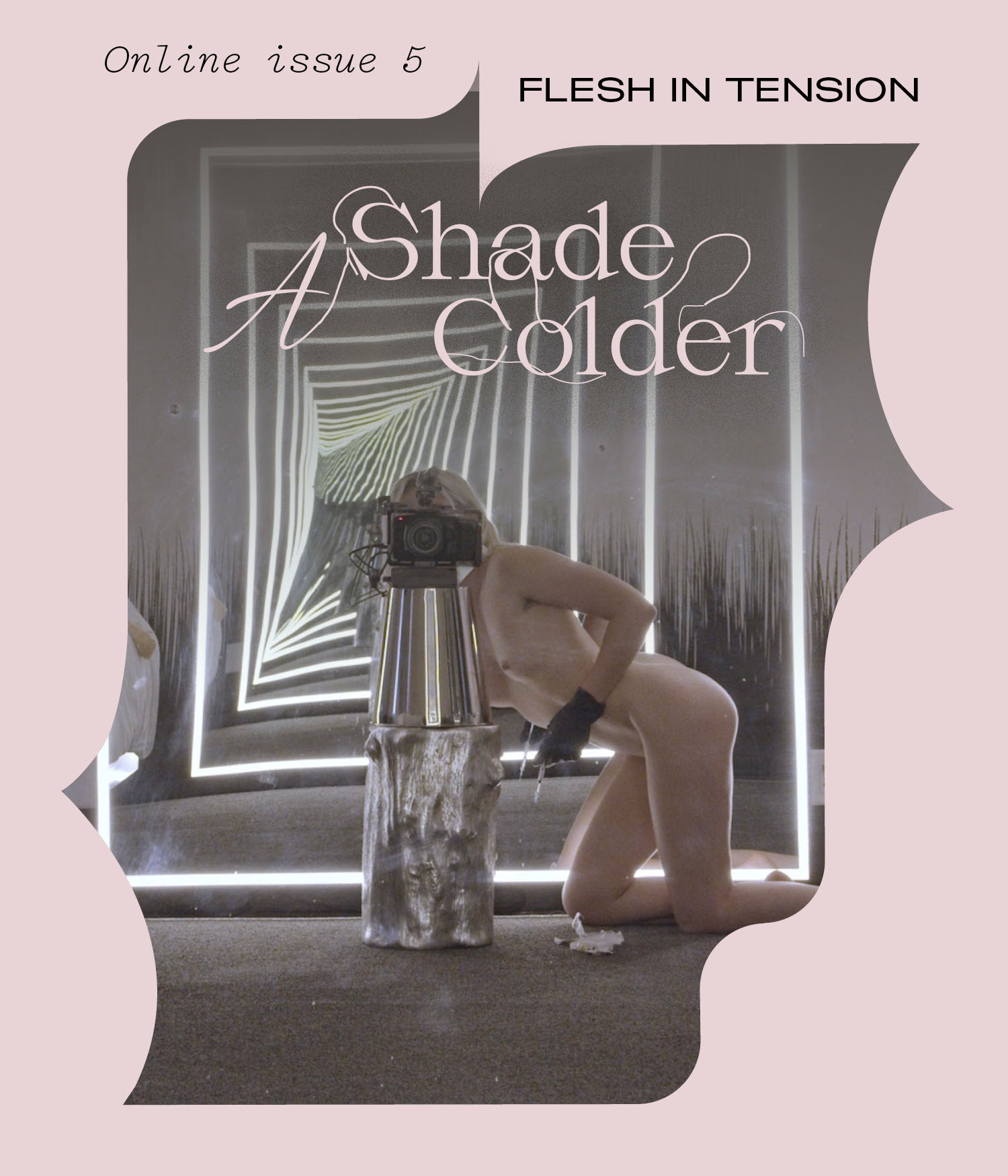Breadcrumb
The fifth issue of A Shade Colder: Flesh in Tension
The fifth issue of A Shade Colder, Flesh in Tension is now available online. The new issue features texts on work, gender, performance, stereotypes, architecture and disability with textual and visual contributions by Airi Triisberg, Zody Burke, Heneliis Notton, Marge Monko, Ingrid Ruudi, Kaarin Kivirähk and nick von kleist.
INTERVIEW: The position of spectatorship is by default triggering: An interview with Samira Elagoz by Heneliis Notton
Filmmaker and performance artist Samira Elagoz likes to join his spectators in front of the camera, capturing relationships in an intimacy deprived society. This interview is a sequel to questions the author Heneliis Notton was left with after being introduced to Samira's practice and a prequel to him coming to perform Seek Bromance at the festival SAAL Biennaal in Tallinn in August.
PAST&PRESENT: The spatial politics of disability in late Soviet Estonia by Ingrid Ruudi
Disabled Soviet II World War veteran, 1970s
A healthy and capable body was one of the pillars of Soviet ideology, glorified in the images of victorious military heroes, muscular factory workers and outstanding sportsmen. However, generating a new Soviet body as one of the aims of the Socialist utopia necessarily involved segregating and displacing the deviant bodies that did not comply with this heroic image. In the public discourse, people with disabilities were invisible.
Architecture historian Ingrid Ruudi offers a glimpse into the spaces designated for disabled bodies in late Soviet Estonia, asking how the spaces planned, designed and built for them contributed to their marginalisation in society, what role did these spatial strategies have in the construction of their identity, and how did the specific qualities of those buildings affect their everyday experience.
INTERVIEW: From home sweet home to an object of speculation: Interview with architects Aet Ader, Arvi Anderson and Mari Möldre by Kaarin Kivirähk
Architects Arvi Anderson, Mari Möldre and Aet Ader. Photo by Kertin Vasser
At this year’s Architecture Biennale in Venice, an attentive visitor notices a poster with a friendly face just a few steps from the Arsenale, inviting people to enter the building. This is Home Stage, the Estonian exhibition which explores the contradiction between the living place as a home and its exchange value. For the duration of the biennale, a set of performers will live in a rental apartment, allowing guests to be part of the ongoing durational performance.
Guide to Festivals and Biennials in the Baltics for Summer 2023
Vilnius Biennial of Performance Art. Opening event (curated programme) Emilija Škarnulytė performance. Photo by Marius Zicius
Find your way to festivals and biennials happening in the Baltics during the upcoming Summer months.
